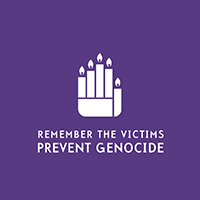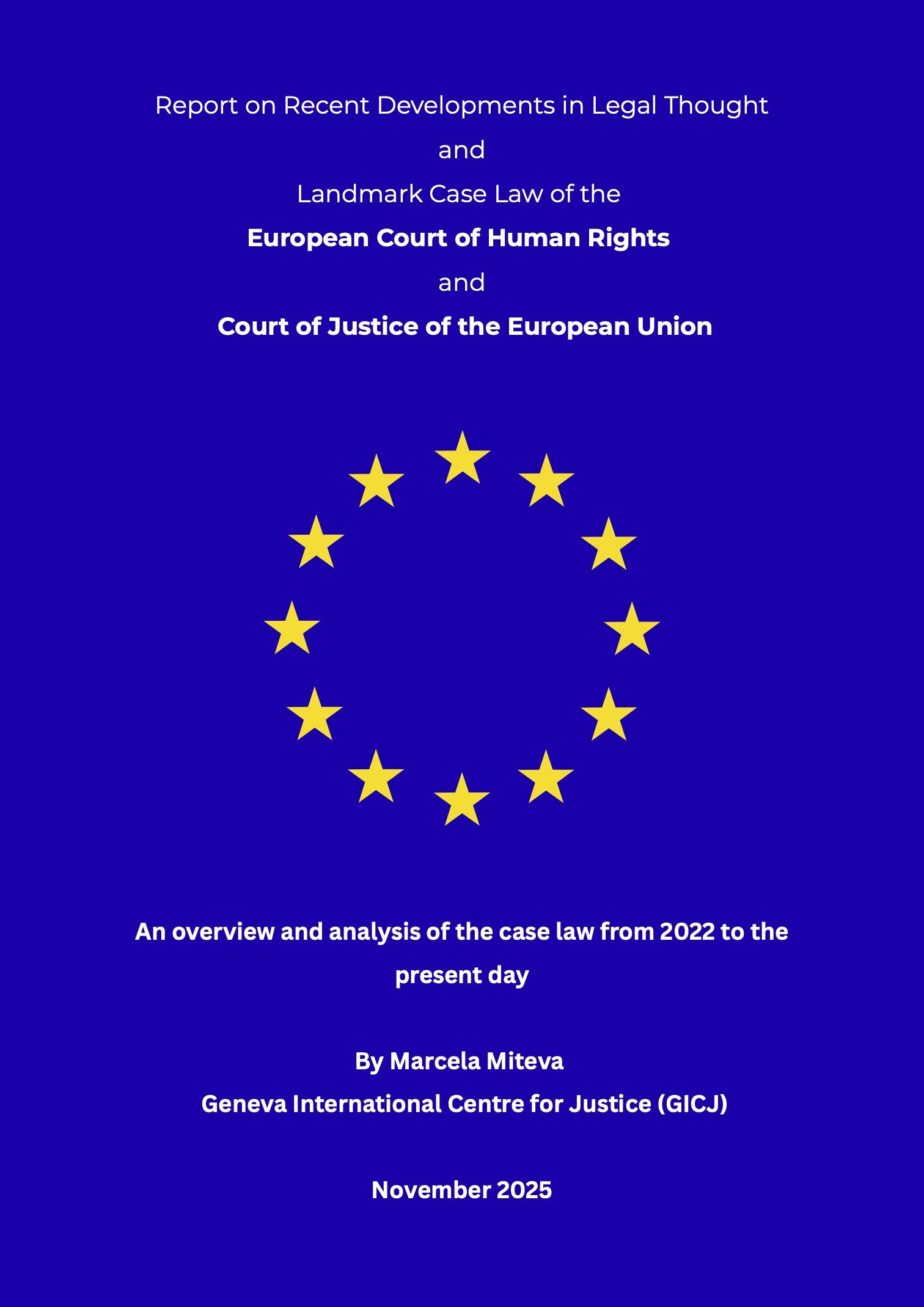Recognizing the warning signs and renewing our “never-again” spirit

Today, the 9th December 2016, the world celebrates the International Day of Commemoration and Dignity of the Victims of the Crime of Genocide and of the Prevention of this Crime. This significant occurrence was established by the United Nations General Assembly in 2015 to commemorate the anniversary of the adoption of the 1948 Convention on the Prevention and Punishment of the Crime of Genocide (the “Genocide Convention”).
In the aftermath of some of the bloodiest times in history, the Genocide Convention was the first human rights treaty adopted by the United Nations, as well as the first legal document to set out the definition of “crime of genocide”, which stands at its core and heart. Much have been the controversies and debates surrounding the definitional provision, enshrined in Article II of the document, nevertheless this stood the test of time and resisted alterations or expansions until today.
Despite the Genocide Convention was formulated in a vehement “never-again” spirit, it did not impede the following imminent atrocities from taking place. The next half of the century, on the contrary, was one of the bloodiest of all times. Human race witnessed nefarious bloodsheds and horrendous attempts of national, ethnic, racial and religious extermination. We may recall the 1972 and 1993 Burundian genocides of Hutus and Tutsis, the 1979 Cambodian genocide, the infamous 1994 Rwanda genocide, but also the Bosnian genocide later in 1992-1995.
And unfortunately, the new Century did not bring renovated resolutions of global peace. Contrarily to expectations, the growth in the instruments for the punishment and prevention of this crime in these past decades, has in fact not corresponded to a decrease of the crime itself. Let alone the 2003 genocide in Darfur, which is still ongoing at present and has made about 300,000 victims so far, there is plenty of other conflicts that could be classified under the Convention.
A case to be mentioned, and perhaps one of the most controversial, is that of the Palestinian people. Whereas many deny that a genocide is taking place in the occupied territories at the hands of Israeli authorities, Geneva International Centre for Justice (GICJ) considers the crimes perpetrated by the Occupying Power as a clear attempt to destroy this specific ethnic and religious group since 1948. What is happening in Palestine in fact goes beyond ethnic cleansing. Through the brutal wars waged against Gaza, the blockades of food, medicines and humanitarian help, the systematic mass killings and their policies of collective punishment, Israel is intentionally trying to destroy the Palestinian population. If not stopped soon, it might indeed achieve such goal.
Another example are the events which took place in Fallujah during the 2003 US-led invasion of Iraq. The population of this unfortunate city was subjected to disproportionately heavy bombing by the Coalition. The US and UK forces are known for having used toxic weapons, including large quantities of depleted uranium (prohibited under international law), in what was a clear attempt to wipe out the city and its citizens. Yet, this intentional murder of the predominantly Sunni population not only never officially constituted “genocide”, but obtained little international notice.
On this important occasion, Geneva International Centre for Justice (GICJ) would also like bring the international community’s attention the issue concerning those situations which have not yet been classified as “genocide”, but will in fact lead to that very outcome if not stopped on time.
We refer for instance to the situation in Burundi. Decades after the apparent calming down of the ethnic conflict, violence is rapidly re-awakening in the country. In October 2016, the Burundian authorities took the extreme decision to suspend cooperation with the UN and to withdraw from the International Criminal Court.
Since the attempted coup on 13th May 2015, state-sponsored violence became pandemic in Burundi. A pattern of systemic crimes through the state apparatus can be clearly identified, as well as a chain of command going back to the highest-ranking officials. If it first started with an open and mass repression of every opponent to the regime, the situation then morphed into a series of horrendous abuses committed behind closed doors. Indeed, it appears that the ruling regime has been using the classic rhetoric of defending the Hutu majority against the return of an oppressive Tutsi military. If violence is not timely halted, GICJ fears that it will be not long until the ghost of the 1993 genocide will come back to haunt this afflicted country.
The current situation in Iraq is one to presage “genocide” too. Pro-government sectarian militias are doing their best to erase the Sunni component of the Iraqi society from the country. Alongside the official army, these militias are participating in the harsh military campaigns carried out in the pretext of fighting ISIS. Under this false excuse, they have been slaughtering and massacring hundreds of civilians on purely sectarian basis, while levelling their cities to the ground.
Likewise, many more are the cases of violence which may, or will soon amount to genocide across the globe. GICJ therefore believes that, on such important occasion, it is fundamental to renew our call on the United Nations and its members to truly commit to the purposes of the Genocide Convention firstly by recognizing all cases of genocides in a non-politicized manner. Secondly, GICJ urges the international community to do whatever is in their power to recognize and act upon the warning signs of genocide.
We refer for instance to all of those situations in which racial-discrimination, racism and intolerance have become a cause of violence and conflict. GICJ would like to reiterate that ideologies as such call all be trigger factors to genocide. The UN and its member states must, therefore, act promptly to reduce their spread and rather promote a consciousness of diversity and equality among human beings as a preventive measure.
We also call on the civil society to work to raise awareness of the Genocide Convention and its role in combating and preventing the crime of genocide. We, the civil society, can have a pivotal role in denouncing situation of discrimination and racism and pressuring the international community to take action before these can lead to catastrophic consequences.
Finally, GICJ would like to join the echoes of this special occurrence to commemorate and honour all victims of genocide across the world, which had no fault if not that of belonging to the “wrong side”. Diversity in ethnicity, religion, nationality is not a threat, but a precious gift, which must be always recognized, accepted and preserved.
Justice, Human rights, Geneva, geneva4justice, GICJ, Geneva International Centre For Justice
Day of Remembrance articles by GICJ:
| Land Day in Palestine | Victims of Chemical Warfare | Mine Awareness & Assistance in Mine Action | Reflection on the Genocide in Rwanda | International Women's Day | Human Rights Day - 2016 |
Participation of GICJ at Human Rights Council Sessions
Human Rights Council - 35th regular session (6 June - 24 June 2017)
Human Rights Council - 34th regular session (27 February - 24 March 2017)
Human Rights Council - 33rd regular session (10 September - 30 September 2016)
Human Rights Council - 32nd regular session (13 June - 1 and 8 July 2016) Human Rights Council - 31st regular session (29 February - 24 March 2016)
Human Rights Council - 30th regular session (14 September - 2 October 2015) Human Rights Council - 29th regular session (15 June - 3 July 2015) Human Rights Council - 22nd special session on the human rights situation in Iraq in light of abuses committed by the Islamic State in Iraq and the Levant and associated groups - 1 September 2014: Human Rights Council - 21st special session on the human rights situation in the Occupied Palestinian Territory, including East Jerusalem - 23 July 2014: Human Rights Council - 26th regular session (10 - 27 June 2014): Human Rights Council - 25th regular session (3 - 28 March 2014): Human Rights Council - 24th regular session (9 - 27 September 2013): Human Rights Council - 23rd regular session (27 May - 14 June 2013): Human Rights Council - 22nd regular session (25 February - 22 March 2013): Human Rights Council - 21st regular session (10 - 28 September, 5 November 2012): Human Rights Council - 19th regular session (27 February - 23 March 2012): |
||









